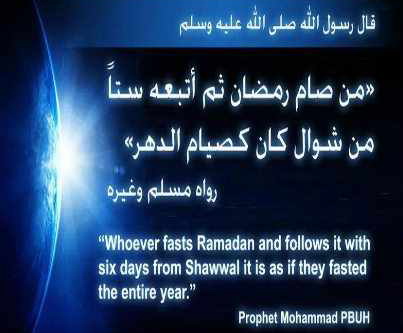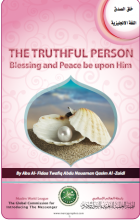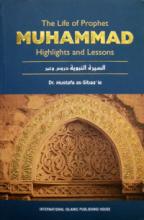The Prophet of Mercy Website
Muslim World League - Global Commission for Introducing the Messenger
Sealed Nectar
Khaibar was a spacious strongly fortified territory, studded with castles and farms, lying at a distance of 60-80 miles north of Madinah, now a village known for its uncongenial climate.
It has been narrated on the authority of Salamah bin Al-Akwa‘, who said: We marched upon Khaibar with the Messenger of Allâh (Peace be upon him). We journeyed during the night. One of the men said to my brother ‘Amir: Won’t you recite to us some of your verses, ‘Amir? So he began to chant his verses to urge the camels, reciting:
O Allâh, if You had not guided us,
We would have neither been guided rightly nor practised charity, nor offered prayers.
We wish to lay down our lives for You; so forgive You our lapses,
The Prophet (Peace be upon him) began the campaign by reducing the minor strongholds one after the other. The first fort he was to attack was Na‘im, the first defence line with a formidable strategic position. Marhab, the leader of the fort, invited ‘Amr bin Al-Akwa‘ to meet him in combat and the latter responded; when ‘Amr struck the Jew, his sword recoiled and wounded his knee, and he died of that wound. The Prophet (Peace be upon him) later said: “For him (‘Amir) there is a double reward in the Hereafter.” He indicated this by putting two of his fingers together.
When the Prophet (Peace be upon him), along with his army, moved to this part of Khaibar, Al-Katiba, he laid a heavy siege to it for fourteen days with the Jews barricading themselves inside their forts. When he was about to use the rams, the Jews realized that they would perish, therefore, they asked for a negotiable peace treaty.
Ibn Abi Al-Huqaiq was despatched to the Messenger of Allâh (Peace be upon him) to negotiate the surrender treaty. The Prophet (Peace be upon him) agreed to spare their lives on condition they evacuate Khaibar and the adjacent land, leaving whatever gold and silver they had in their possession. However, he stipulated that he would disavow any commitment if they concealed anything. Shortly afterwards, the forts were handed over to the Muslims and all Khaibar was reduced and brought under the sway of Islam.
In accordance with the agreement already concluded, the Jews would be obliged to evacuate Khaibar, but they were anxious to keep on cultivating the rich soil and fine orchard for which Khaibar was famous. They, therefore, approached the Prophet (Peace be upon him) with the request that they be allowed to cultivate their lands and they would give half of the produce to the Muslims. Muhammad (Peace be upon him) was kind enough to accede to their request.
After the conquest of Khaibar, a Jewish woman called Zainab bint Al-Harith offered the Prophet (Peace be upon him) a roasted sheep she had poisoned. He took a mouthful, but it was not to his liking so he spat it out. After investigation, the woman confessed that she had stuffed the food with poison alleging that if the eater were a king, she would then rid herself of him, but should he be a Prophet, then he would be bound to learn about it.
The victory at the expedition of Dhat-ur-Riqa' had a tremendous impact on all the Arabians. It cast fear into their hearts and rendered them too powerless to antagonize the Muslim society in Madinah. They began to acquiesce in the prevailing situation and resigned themselves to new geo-political conditions working in favour of the new religion. Some of them even embraced Islam and took an active part in the conquest of Makkah and the battle of Hunain, and received their due shares of the war booty.
Having subdued two powerful sides of the Confederates coalition, the Prophet peace be upon him started preparations to discipline the third party, i.e. the desert bedouins, who took Najd for habitation, and continued in their usual practices of looting and plundering. Unlike the Jews of Khaibar and people of Makkah, they had a liking for living in the wilderness dispersed in scattered spots, hence the difficulty of bringing them under control, and the futility of carrying out deterrent campaigns against them.
When Dhul Qa'da month approached towards the close of the seventh year A.H., the Prophet peace be upon him ordered his people, and the men who witnessed Al-Hudaibiyah Truce Treaty in particular, to make preparations to perform 'Umrah (lesser pilgrimage). He proceeded with 2000 men besides some women and children, and 60 camels for sacrifice, to visit the Holy Sanctuary in Makkah.






